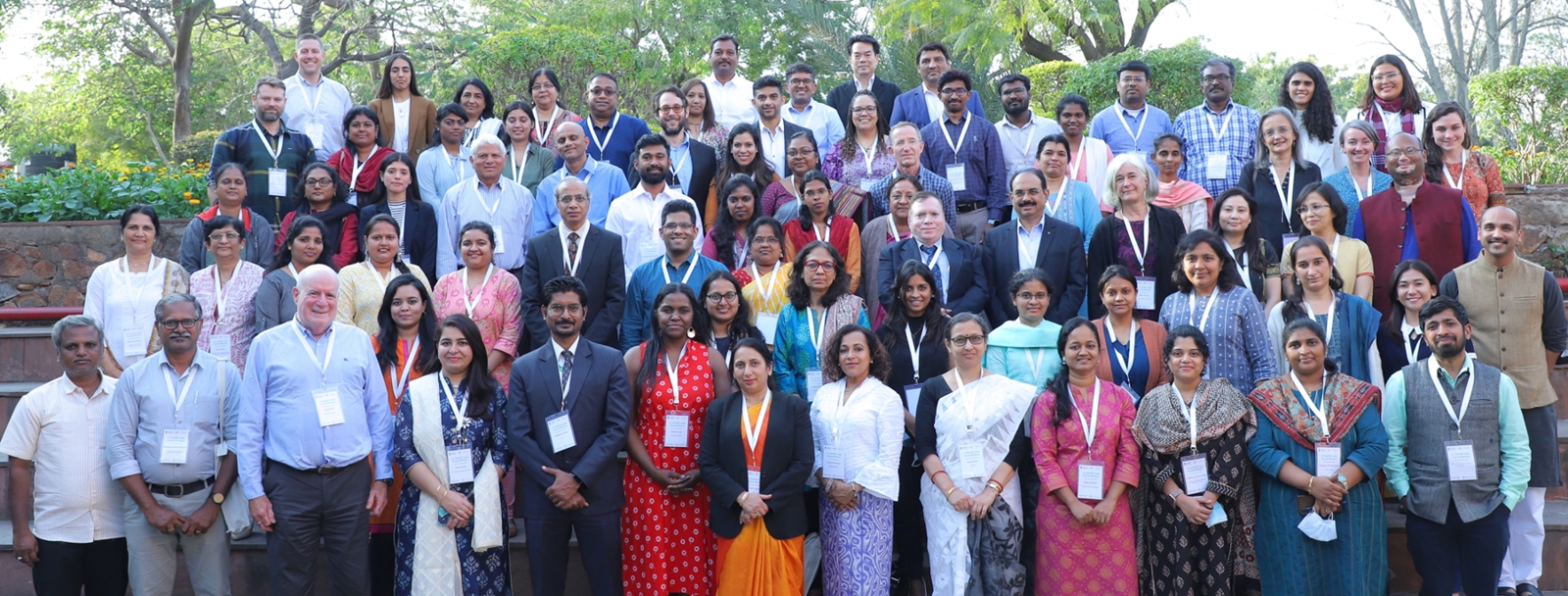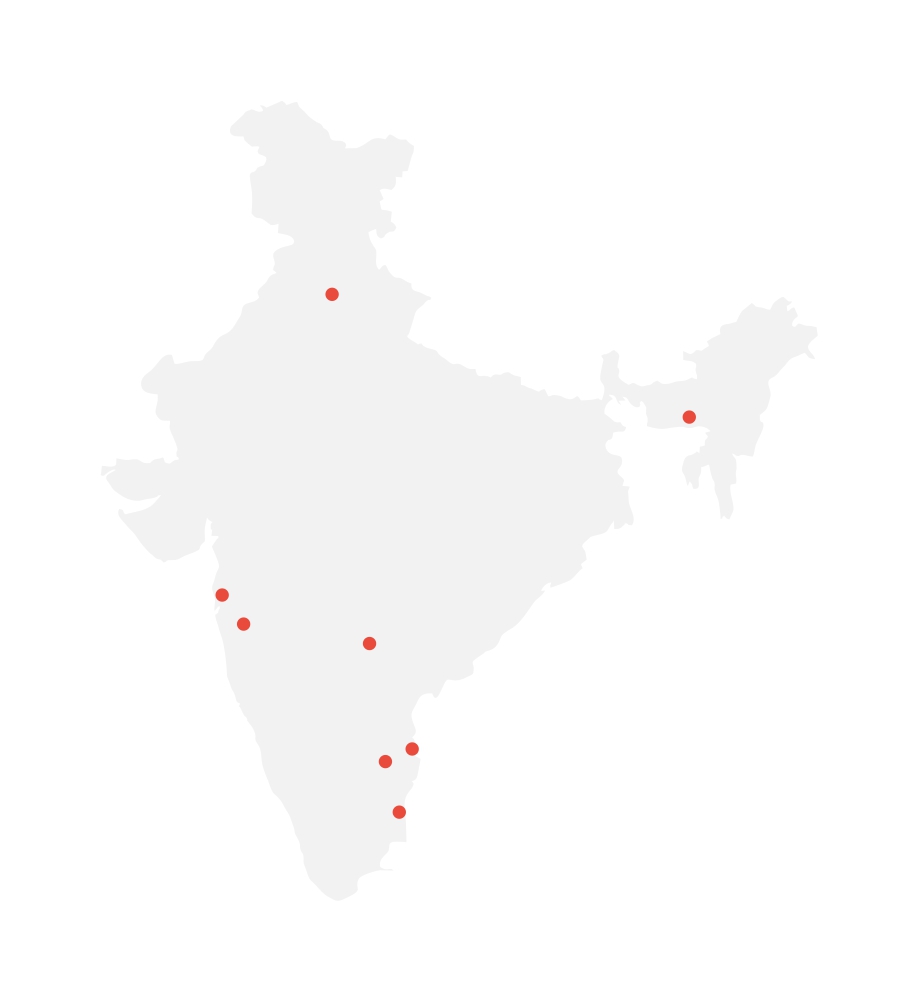Mission & History
RePORT India
RePORT India (Regional Prospective Observational Research for Tuberculosis) is a bilateral, multi-organizational, collaborative research effort established in 2013 under the Indo-U.S. Vaccine Action Program (VAP).
RePORT India is now the largest of six regional consortia – China, Brazil, Indonesia, Philippines, and South Africa are also undertaking multi-organizational tuberculosis (TB) research efforts. Each RePORT consortium is designed to support local, in-country, TB-specific data and specimen biorepositories and associated research. Taken together, the anticipated results include greater global clinical research capacity in high-burden settings and increased local access to quality data and specimens for members of each consortia and their domestic and international collaborators. Leveraging the data, specimens, infrastructure, and scientific partnerships established by RePORT India in Phase I, the consortium has now launched Phase II.
Our Mission
RePORT India is charged with
Advancing
regional TB science in India, towards fulfilling the TB strategic goals of the country
Strengthening
TB research capacity and infrastructure
Fostering
research collaboration within India and with other countries focused on research that can lead to clinically important biomarkers, vaccines, drugs, and diagnostics
Phase I
2013 – 2018
Phase I (2013–18) commenced with six Clinical Research Sites (CRSs) in Western and Southern India that were partnered with five U.S. academic institutions. P.D. Hinduja Hospital and Medical Research Centre was subsequently added as the seventh Indian site. Initially, each site had its own “Parent Protocol” with distinct research topics. In 2017, RePORT India launched the “Common Protocol” with standardized data elements and harmonized procedures for enrollment. Under the Parent and Common Protocols, CRSs established prospective observational cohorts of participants from whom specimens were collected:
Cohort A
Participants who have active TB disease. Studies involving this cohort of patients focus on TB diagnosis and treatment outcomes.
Cohort B
Participants who are household contacts (HHCs) of an active case of TB. Studies involving this cohort of patients focus on risk of infection and progression to TB disease after exposure.
Phase I Protocols
Parent Protocols – CSR Specific Objectives
Each CRS is connected to one or more laboratories where they house their Parent Protocol data and samples at their respective India-based institutions. Samples collected under RePORT India Site-Specific Parent Protocols are kept separate from the Phase I and Phase II Common Protocol samples.
Parent Protocol Study Topics
BMMRC & UTT
Immunologic Markers of Persons at Highest Risk of Progression of Latent TB Infection to TB
BJGMC, NIRT, & JHU
Host and Microbial Factors Associated with Poor Treatment Response and Progression to Active
TB (C-TRIUMPH)
CMC Vellore & Univ of Washington / Univ of Cambridge
Host Determinants in the Eicosanoid Pathway that Modulate the Inflammatory Response,
Disease Outcome, and Treatment Responsiveness in TB
Hinduja & JHU
MDR-TB Treatment Outcomes, Adverse Effects, Mtb Genotyping, and Pharmacokinetic Testing
JIPMER, BU/BMC, & Rutgers
Biomarkers for Risk of TB and for TB Treatment Failure and Relapse
MVDRC, NIRT-ICER, & UMass
Effects of Diabetes and Prediabetes on TB Severity
Common Protocols – RePORT India-Wide Objectives
The primary objective of the Phase I Common Protocol was to provide data and specimens to Indian biomarker researchers and collaborators to better understand:
- Prognosis of TB disease
- Pathogenesis of progression from TB exposure to disease
A RePORT India Central Biorepository was established at the National Institute of Research in Tuberculosis (NIRT) in Chennai led by Dr. Hanna Luke Elizabeth.
In addition, a Statistical Data Management Center was established at the Society for Applied Studies (SAS) – Centre for Health Research and Development (CHRD) in New Delhi, and Pharmaceutical Product Development, LLC (PPD) was contracted to provide Common Protocol technical support.
Phase II
2021
Under a Phase II Common Protocol, we are pursuing five specific scientific aims including the following cohorts:
Diagnostic
New TB suspects
Cohort A
Active TB disease
Cohort B
HHCs
Samples collected under this protocol will be curated, stored, and managed at the RePORT India Central Biorepository at NIRT where Phase I Common Protocol samples are currently stored. A data management center is being established at JIPMER in Puducherry and PPD will continue to provide technical support. The consortium has now been expanded to include two new CRSs in Northern India.
North Eastern Indira Gandhi Regional Institute of Health & Medical Sciences (NEIGRIMHS)
- Location: Shillong, India
- Principal Investigator: Dr. Valarie Lyngdoh
- Linked to: JIPMER
Postgraduate Institute of Medical Education and Research (PGI)
- Location: Chandigarh, India
- Principal Investigator: Dr. Ashutosh N Aggarwal
- Linked to: CMC Vellore
Executive Committee’s Mission
Set Research Priorities
Guide Scientific Activities
Offer Administration & Logistics in Support of Research Priorities
Funding
The RePORT India Consortium is supported with bilateral funding from the Government of India’s (GOI) Department of Biotechnology (DBT) and the U.S. National Institutes of Health’s (NIH) National Institute of Allergy and Infectious Diseases (NIAID), Division of AIDS (DAIDS), and Office of AIDS Research (OAR). CRDF Global administers and oversees the funding from the U.S. government.


